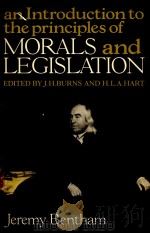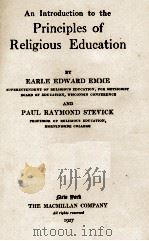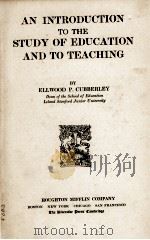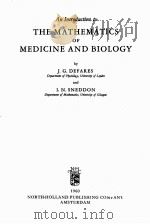《An introduction to the principles of morals and legislation》
| 作者 | 编者 |
|---|---|
| 出版 | Methuen |
| 参考页数 | 343 |
| 出版时间 | 1982(求助前请核对) 目录预览 |
| ISBN号 | 0416319106 — 求助条款 |
| PDF编号 | 812919768(仅供预览,未存储实际文件) |
| 求助格式 | 扫描PDF(若分多册发行,每次仅能受理1册) |

PREFACE1
Ⅰ OF THE PRINCIPLE OF UTILITY11
1. Mankind governed by pain and pleasure11
2. Principle of utility, what11
A principle, what11
3. Utility, what12
4-5. Interest of the community, what12
6. An action conformable to the principle of utility, what12
7. A measure of government conformable to the principle of utility, what13
8. Laws or dictates of utility, what13
9. A partisan of the principle of utility, who13
10. Ought, ought not, right and wrong, c. how to be understood13
11. To prove the rectitude of this principle is at once un-necessary and impossible13
12. It has seldom, however, as yet, been consistently pursued13
13. It can never be consistently combated14
14. Course to be taken for surmounting prejudices that may have been entertained against it15
Ⅱ OF PRINCIPLES ADVERSE TO THAT OF UTILITY17
1. All other principles than that of utility must be wrong17
2. Ways in which a principle may be wrong17
Asceticism, origin of the word17
Principles of the Monks17
3. Principle of asceticism, what17
4. A partisan of the principle of asceticism, who18
5. This principle has had in some a philosophical, in others a religious origin18
6. It has been carried farther by the religious party than by the philosophical18
7. The philosophical branch of it has had most influence among persons of education, the religious among the vulgar19
8. The principle of asceticism has never been steadily applied by either party to the business of government19
9. The principle of asceticism, in its origin, was but that of utility misapplied21
10. It can never be consistently pursued21
11. The principle of sympathy and antipathy, what21
12. This is rather the negation of all principle, than anything positive25
13. Sentiments of a partisan of the principle of antipathy25
14. The systems that have been formed concerning the standard of right and wrong, are all reducible to this principle25
Various phrases, that have served as the characteristic marks of so many pretended systems:26
1. Moral Sense26
2. Common Sense26
3. Understanding26
4. Rule of Right26
5. Fitness of Things27
6. Law of Nature27
7. Law of Reason, Right Reason, Natural Justice, Natural Equity, Good Order27
8. Truth27
9. Doctrine of Election27
10. Repugnancy to Nature27
Mischief they produce28
Whether utility is actually the sole ground of all the approbation we ever bestow, is a different consideration28
15. This principle will frequently coincide with that of utility29
16. This principle is most apt to err on the side of severity29
17. But errs, in some instances, on the side of lenity31
18. The theological principle, what-not a separate principle31
The principle of theology how reducible to one or another of the other three principles31
19. Antipathy, let the actions it dictates be ever so right, is never of itself a right ground of action32
Ⅲ OF THE FOUR SANCTIONS OR SOURCES OF PAIN AND PLEASURE34
1. Connexion of this chapter with the preceding34
2. Four sanctions or sources of pleasure and pain34
3. The physical sanction35
4. The political35
5. The moral or popular35
6. The religious35
7. The pleasures and pains which belong to the religious sanction, may regard either the present life or a future35
8. Those which regard the present life, from which soever source they flow, differ only in the circumstances of their production35
9. Example36
10. Those which regard a future life are not specifically known36
11. The physical sanction included in each of the other three37
12. Use of this chapter37
Ⅳ VALUE OF A LOT OF PLEASURE OR PAIN, HOW TO BE MEASURED38
1. Use of this chapter38
2. Circumstances to be taken into the account in estimating the value of a pleasure or pain considered with reference to a single person, and by itself38
3. -considered as connected with other pleasures or pains38
4. -considered with reference to a number of persons39
5. Process for estimating the tendency of any act or event39
6. Use of the foregoing process40
7. The same process applicable to good and evil, profit and mischief, and all other modifications of pleasure and pain40
8. Conformity of men's practice to this theory40
Ⅴ PLEASURE AND PAINS, THEIR KINDS42
1. Pleasures and pains are either, (1) Simple: or (2) Complex42
2. The simple pleasures enumerated42
3. The simple pains enumerated42
Analytical view, why none given42
4. Pleasures of sense enumerated43
5. Pleasures of wealth, which are either of acquisition, or of possession43
Pleasures of skill43
6. Pleasures of amity43
7. Pleasures of a good name44
8. Pleasures of power44
9. Pleasures of piety44
10. Pleasures of benevolence or good-will44
11. Pleasures of malevolence or ill-will44
12. Pleasures of the memory45
13. Pleasures of the imagination45
14. Pleasures of expectation45
15. Pleasures of depending on association45
16. Pleasures of relief45
17. Pains of privation46
18. These include, (1) Pains of desire46
19. (2) Pains of disappointment46
20. (3) Pains of regret46
21. Pains of the senses46
No positive pains correspond to the pleasure of the sexual sense47
22. Pains of awkwardness47
No positive pains correspond to the pleasure of novelty47
nor to those of wealth47
Is this a distinct positive pain, or only a pain of privation?47
23. Pains of enmity47
24. Pains of an ill-name47
The positive pains of an ill-name, and the pains of privation, opposed to the pleasures of a good name, run into one another46
25. Pains of piety48
No positive pains correspond to the pleasures of power48
The positive pains of piety, and the pains of privation, opposed to the pleasures of piety, run into one another48
26. Pains of benevolence48
27. Pains of malevolence48
28. Pains of the memory48
29. Pains of the imagination48
30. Pains of expectation48
31. Pains of association49
32. Pleasures and pains are either self-regarding or extra-regarding49
Pleasures and pains of amity and enmity distinguished from those of benevolence and malevolence49
33. In what ways the law is concerned with the above pains and pleasures49
Complex pleasures and pains omitted, why49
Specimen.- Pleasures of a country prospect49
Ⅵ OF CIRCUMSTANCES INFLUENCING SENSIBILITY51
1. Pain and pleasure not uniformly proportioned to their causes51
2. Degree or quantum of sensibility, what51
3. Bias or quality of sensibility, what51
4. Exciting causes pleasurable and dolorific51
5. Circumstances influencing sensibility, what52
6. Circumstances influencing sensibility enumerated52
Extent and intricacy of this subject52
7. Health53
8. Strength53
Measure of strength, the weight a man can lift54
Weakness, what54
9. Hardiness54
Difference between strength and hardiness54
10. Bodily imperfection55
11. Quantity and quality of knowledge55
12. Strength of intellectual powers55
13. Firmness of mind56
14. Steadiness56
15. Bent of inclinations56
16. Moral sensibility57
17. Moral biases57
18. Religious sensibility57
19. Religious biases57
20. Sympathetic sensibility57
21. Sympathetic biases57
22. Antipathetic sensibility and biases58
23. Insanity58
24. Habitual occupations58
25. Pecuniary circumstances58
26. Connexions in the way of sympathy60
27. Connexions in the way of antipathy61
28. Radical frame of body61
29. Radical frame of mind62
Idiosyncrasy, what62
30. This distinct from the circumstance of frame of body62
Whether the soul be material or immaterial makes no difference62
31. -and from all others62
32. Yet the result of them is not separately discernible63
33. Frame of body indicates, but not certainly, that of mind63
34. Secondary influencing circumstances64
35. Sex64
36. Age65
37. Rank65
38. Education66
39. Climate67
40. Lineage67
41. Government67
42. Religious profession68
43. Use of the preceding observations69
44. How far the circumstances in question can be taken into account69
45. To what exciting causes there is most occasion to apply them70
46. Analytical view of the circumstances influencing sensibility72
Analytical view of the constituent articles in a man's pecuniary circumstances72
Ⅶ OF HUMAN ACTIONS IN GENERAL74
1. The demand for punishment depends in part upon the tendency of the act74
2. Tendency of an act determined by its consequences74
3. Material consequences only are to be regarded74
4. These depend in part upon the intention74
5. The intention depends as well upon the understanding as the will75
6. In an action are to be considered (1) the act; (2) the circumstances; (3) the intentionality; (4) the con-sciousness75
7. (5) the motives; (6) the disposition75
8. Acts positive and negative75
Acts of omission are still acts75
9. Negative acts may be so relatively or absolutely76
10. Negative acts may be expressed positively; and vice versa76
11. Acts external and internal76
12. Acts of discourse, what76
13. External acts may be transitive or intransitive76
Distinction between transitive acts and intransitive, recognised by grammarians77
14. A transitive act, its commencement, termination, and intermediate progress77
15. An intransitive act, its commencement, and termination77
16. Acts transient and continued78
17. Difference between a continued act and a repetition of acts78
18. Difference between a repetition of acts and a habit78
19. Acts are indivisible, or divisible, as well with regard to matter as to motion78
20. Caution respecting the ambiguity of language79
21. Circumstances are to be considered79
22. Circumstances, what79
Circumstance, archetypation of the word79
23. Circumstances material and immaterial80
24. A circumstance may be related to an event in point of causality, in four ways, viz80
(1) Production.(2) Derivation.(3) Collateral connexion.(4) Conjunct influence80
25. Example. Assassination of Buckingham80
26. It is not every event that has circumstances related to it in all those ways81
27. Use of this chapter82
Ⅷ OF INTENTIONALITY84
1. Recapitulation84
2. The intention may regard, (1) the act: or (2) the con-sequences84
Ambiguity of the words voluntary and involuntary84
3. It may regard the act without any of the consequences84
4. -or the consequences without regarding the act in all its stages84
5. -but not without regarding the first stage85
An act unintentional in its first stage, may be so with respect to (1) Quantity of matter moved: (2) Direction: (3) Velocity85
6. A consequence, when intentional, may be directly so, or obliquely86
7. When directly, ultimately so, or mediately86
8. When directly intentional, it may be exclusively so, or inexclusively86
9. When inexclusively, it may be conjunctively, disjunctively, or indiscriminately so86
10. When disjunctively, it may be with or without preference87
Difference between an incident's being unintentional, and dis-junctively intentional, when the election is in favour of the other87
11. Example87
12. Intentionality of the act with respect to its different stages, how far material88
13. Goodness and badness of intention dismissed88
Ⅸ OF CONSCIOUSNESS90
1. Connexion of this chapter with the foregoing90
2. Acts advised and unadvised: consciousness, what90
3. Unadvisedness may regard either existence, or materiality90
4. The circumstance may have been present, past, or future90
5. An unadvised act may be heedless, or not heedless90
6. A misadvised act, what.-a missupposal90
7. The supposed circumstance might have been material in the way either of prevention or of compensation91
8. It may have been supposed present, past, or future91
9. Example, continued from the last chapter91
10. In what case consciousness extends the intentionality from the act to the consequences92
11. Example continued92
12. A misadvised act may be rash or not rash92
13. The intention may be good or bad in itself, independently of the motive as well as the eventual consequences92
14. It is better, when the intention is meant to be spoken of as being good or bad, not to say, the motive93
15. Example93
16. Intention, in what cases it may be innocent94
17. Intentionality and consciousness, how spoken of in the Roman law94
18. Use of this and the preceding chapter95
Ⅹ OF MOTIVES96
§ ⅰ. Different senses of the word motive96
1. Motives, why considered96
2. Purely speculative motives have nothing to do here96
3. Motives to the will96
4. Figurative and unfigurative senses of the word97
5. Motives interior and exterior97
6. Motive in prospect-motive in esse98
7. Motives immediate and remote98
8. Motives to the understanding how they may influence the will99
§ ⅱ. No motives either constantly good or constantly bad100
9. Nothing can act of itself as a motive, but the ideas of pleasure or pain100
10. No sort of motive is in itself a bad one100
11. Inaccuracy of expressions in which good or bad are applied to motives100
12. Any sort of motive may give birth to any sort of act100
13. Difficulties which stand in the way of an analysis of this sort101
§ ⅲ. Catalogue of motives corresponding to that of Pleasures and Pains103
14. Physical desire corresponding to pleasures of sense in general103
15. The motive corresponding to the pleasures of the palate103
16. Sexual desire corresponding to the pleasures of the sexual sense104
17. Curiosity, c. corresponding to the pleasures of curiosity104
18. None to the other pleasures of sense104
19. Pecuniary interest to the pleasures of wealth105
20. None to the pleasures of skill105
21. To the pleasures of amity, the desire of ingratiating one's self105
22. To the pleasures of a good name, the love of reputation105
23. To the pleasures of power, the love of power108
24. The motive belonging to the religious sanction108
25. Good-will, c. to the pleasures of sympathy109
26. Ill-will, c. to the pleasures of antipathy111
27. Self-preservation, to the several kinds of pains112
28. To the pains of exertion, the love of ease113
29. Motives can only be bad with reference to the most frequent complexion of their effects114
30. How it is that motives, such as lust, avarice, c are constantly bad114
31. Under the above restrictions, motives may be distinguished into good, bad, and indifferent or neutral115
32. Inconveniences of this distribution115
33. It is only in individual instances that motives can be good or bad116
34. Motives distinguished into social, dissocial, and self-regarding116
35. -social, into purely-social, and semi-social116
§ ⅳ. Order of pre-eminence among motives116
36. The dictates of good-will are the surest of coinciding with those of utility116
Laws and dictates conceived as issuing from motives116
37. Yet do not in all cases117
38. Next to them come those of the love of reputation118
39. Next those of the desire of amity119
40. Difficulty of placing those of religion119
41. Tendency they have to improve121
42. Afterwards come the self-regarding motives: and lastly that of displeasure121
§ ⅴ. Conflict among motives122
43. Motives impelling and restraining, what122
44. What are the motives most frequently at variance122
45. Example to illustrate a struggle among contending motives122
46. Practical use of the above disquisitions relative to motives123
Ⅺ OF HUMAN DISPOSITIONS IN GENERAL125
1. Disposition, what125
2. How far it belongs to the present subject125
3. A mischievous disposition; a meritorious disposition; what126
4. What a man's disposition is, can only be matter of presumption126
5. It depends upon what the act appears to be to him126
6. Which position is grounded on two facts: (1) The correspondence between intentions and consequences126
7. (2) Between the intentions of the same person at different times127
A disposition, from which proceeds a habit of doing mischief, cannot be a good one127
8. The disposition is to be inferred, (1) From the apparent tendency of the act: (2) from the nature of the motive127
9. Case 1. Tendency, good-motive, self-regarding127
10. Case 2. Tendency, bad-motive, self-regarding127
11. Case 3. Tendency, good-motive, good-will128
12. Case 4. Tendency, bad-motive, good-will128
13. This case not an impossible one128
14. Example I128
15. Example II129
16. Example III129
17. Case 5. Tendency, good-motive, love of reputation129
The bulk of mankind apt to depreciate this motive129
18. Case 6. Tendency, bad-motive, honour130
19. Example I130
20. Example II130
21. Case 7. Tendency, good-motive, piety131
22. Case 8. Tendency, bad-motive, religion131
23. The disposition may be bad in this case131
24. Case 9. Tendency, good-motive, malevolence133
Example133
25. Case 10. Tendency, bad-motive, malevolence133
Example134
26. Problem-to measure the depravity in a man's dis-position134
27. A man's disposition is constituted by the sum of his intentions134
28. -which owe their birth to motives134
29. A seducing or corrupting motive, what-a tutelary or preservatory motive134
30. Tutelary motives are either standing or occasional134
31. Standing tutelary motives are, Good-will135
32. The love of reputation135
33. The desire of amity136
34. The motive of religion136
35. Occasional tutelary motives may be any whatsoever137
36. Motives that are particularly apt to act in this character are, (1) Love of ease. (2) Self-preservation137
37. Dangers to which self-preservation is most apt in this case to have respect, are, (1) Dangers purely physical. (2) Dangers depending on detection137
38. Danger depending on detection may result from, (1) Opposition on the spot: (2) Subsequent punishment138
39. The force of the two standing tutelary motives of love of reputation, and desire of amity, depends upon detection138
40. Strength of a temptation, what is meant by it138
41. Indications afforded by this and other circumstances respecting the depravity of an offender's disposition139
42. Rules for measuring the depravity of disposition indicated by an offence140
43. Use of this chapter141
Ⅻ OF THE CONSEQUENCES OF A MISCHIEVOUS ACT143
§ ⅰ. Shapes in which the mischief of an act may show itself143
1. Recapitulation143
2. Mischief of an act, the aggregate of its mischievous consequences143
3. The mischief of an act, primary or secondary143
4. Primary-original or derivative143
5. The secondary-(1) Alarm: or, (2) Danger144
6. Example144
7. The danger whence it arises-a past offence affords no direct motive to a future145
8. But it suggests feasibility, and weakens the force of restraining motives145
9. viz. (1) Those issuing from the political sanction146
10. (2) Those issuing from the moral146
11. It is said to operate by the influence of example147
12. The alarm and the danger, though connected, are distinguishable147
13. Both may have respect to the same person, or to others147
14. The primary consequences of an act may be mis-chievous and the secondary, beneficial147
15. Analysis of the different shapes in which the mischief of an act may show itself147
-applied to the preceding cases149
16. -to examples of other cases where the mischief is less conspicuous149
Example Ⅰ. An act of self-intoxication149
17. Example Ⅱ. Non-payment of a tax149
18. No alarm, when no assignable person is the object151
§ ⅱ. How intentionality, c. may influence the mischief of an act152
19. Secondary mischief influenced by the state of the agent's mind152
20. Case. 1. Involuntariness153
21. Case 2. Unintentionalty with heedlessness153
22. Case. 3. Missupposal of a complete justification, without rashness153
23. Case 4. Missupposal of a partial justification, without rashness153
24. Case 5. Missupposal, with rashness153
25. Case. 6. Consequences completely intentional, and free from missupposal154
26. The nature of a motive takes not away the mischief of the secondary consequences154
27. Nor the beneficialness154
28. But it may aggravate the mischievousness, where they are mischievous155
29. But not the most in the case of the worst motives155
30. It does the more, the more considerable the tendency of the motive to produce such acts155
31. -which is as its strength and constancy155
32. General efficacy of a species of motive, how measured155
33. A mischievous act is more so, when issuing from a self-regarding than when from a dissocial motive155
34. -so even when issuing from the motive of religion156
35. How the secondary mischief is influenced by disposition156
36. Connexion of this with the succeeding chapter156
ⅩⅢ CASES UNMEET FOR PUNISHMENT156
§ ⅰ. General view of cases unmeet for punishment158
1. The end of law is, to augment happiness158
2. But punishment is an evil158
What concerns the end, and several other topics, relative to punishment, dismissed to another work158
Concise view of the ends of punishment158
3. Therefore ought not to be admitted159
Where groundless; Inefficacious; Unprofitable; Or needless159
§ ⅱ. Cases in which punishment is groundless159
4. Where there has never been any mischief: as in the case of consent159
5. Where the mischief was outweighed: as in precaution against calamity, and the exercise of powers159
6. -or will, for a certainty, be cured by compensation160
Hence the favours shown to the offences of responsible offenders: such as simple mercantile frauds160
§ ⅲ. Cases in which punishment must be inefficacious160
7. Where the penal provision comes too late: as in (1) An ex-post-facto law-(2) an ultra-legal sentence160
8. Or is not made known: as in a law not sufficiently promulgated160
9. Where the will cannot be deterred from any act, as in161
(1) infancy (2) insanity (3) intoxication161
In infancy and intoxication the case can hardly be proved to come under the rule161
the reason for not punishing in these three cases is commonly put upon a wrong footing161
10. Or not from the individual act in question, as in161
(1) unintentionality (2) unconsciousness (3) missupposal161
11. Or is acted on by an opposite superior force: as by162
(1) physical danger. (2) threatened mischief162
Why the influence of the moral and religious sanctions is not mentioned in the same view162
12. -or the bodily organs cannot follow its determination: as under physical compulsion or restraint162
§ ⅳ. Cases where punishment is unprofitable163
13. 1. Where, in the sort of case in question, the punishment would produce more evil than the offence would163
14. Evil producible by a punishment-its four branchesviz.163
(1) Restraint (2) Apprehension (3) Sufferance (4) Derivative evils163
15. (The evil of the offence, being different according to the nature of the offence, cannot be represented here)163
16. 2. Or, in the individual case in question by reason of163
(1) the multitude of delinquents (2) The value of a delinquent's service (3) The displeasure of the people (4) The displeasure of foreign powers164
§ ⅴ. Cases where punishment is needless164
17. Where the mischief is to be prevented at a cheaper rate: as by instruction164
ⅩⅣ OF THE PROPORTION BETWEEN PUNISHMENTS AND OFFENCES165
1. Recapitulation165
2. Four objects of punishment165
3. 1st Object-to prevent all offences165
4. 2d Object-to prevent the worst165
5. 3d Object-to keep down the mischief165
6. 4th Object-to act at the least expense165
7. Rules of proportion between punishments and offences165
The same rules applicable to motives in general165
8. Rule 1.-Outweigh the profit of the offence166
Profit may be of any other kind, as well as pecuniary166
Impropriety of the notion that the punishment ought not to increase with the temptation166
9. The propriety of taking the strength of the temptation for a ground of abatement, no objection to this rule167
10. Rule 2.-Venture more against a great offence than a small one168
Example.-Incendiarism and coining168
11. Rule 3.-Cause the least of two offences to be preferred168
12. Rule 4.-Punish for each particle of the mischief168
Example.-In blows given, and money stolen168
13. Rule 5.-Punish in no degree without special reason169
14. Rule 6.-Attend to circumstances influencing sensibility169
15. Comparative view of the above rules169
16. Into the account of the value of a punishment, must be taken its deficiency in point of certainty and proximity169
17. Also, into the account of the mischief, and profit of the offence, the mischief and profit of other offences of the same habit170
18. Rule 7.-Want of certainty must be made up in magnitude170
19. Rule 8.-So also want of proximity170
20. Rule 9.-For acts indicative of a habit, punish as for the habit170
21. The remaining rules are of less importance170
22. Rule 10.-For the sake of quality, increase in quantity171
23. Rule 11.-Particularly for a moral lesson171
A punishment applied by way of moral lesson, what171
Example.-In simple corporal injuries171
Example.-In military laws171
24. Rule 12.-Attend to circumstances which may render punishment unprofitable171
25. Rule 13.-For simplicity's sake, small disproportions may be neglected171
Proportionality carried very far in the present work-why172
26. Auxiliary force of the physical, moral, and religious sanctions, not here allowed for-why172
27. Recapitulation172
28. The nicety here observed vindicated from the charge of inutility173
ⅩⅤ OF THE PROPERTIES TO BE GIVEN TO A LOT OF PUNISHMENT175
1. Properties are to be governed by proportion175
2. Property 1. Variability175
3. Property 2. Equability175
4. Punishments which are apt to be deficient in this respect176
5. Property 3. Commensurability to other punishments177
6. How two lots of punishment may be rendered perfectly commensurable177
7. Property 4. Characteristicalness177
8. The mode of punishment the most eminently characteristic, is that of retaliation178
9. Property 5.-Exemplarity178
10. The most effectual way of rendering a punishment exemplary is by means of analogy179
11. Property 6. Frugality179
12. Frugality belongs in perfection to pecuniary punishment179
13. Exemplarity and frugality in what they differ and agree180
14. Other properties of inferior importance180
15. Property 7. Subserviency to reformation180
16. -applied to offences originating in ill-will181
17. -to offences originating in indolence joined to pecuniary interest181
18. Property 8. Efficacy with respect to disablement181
19. -is most conspicuous in capital punishment181
20. Other punishments in which it is to be found182
21. Property 9. Subserviency to compensation182
22. Property 10. Popularity183
Characteristicalness renders a punishment, (1) memorable (2) exemplary (3) popular183
23. Mischiefs resulting from the unpopularity of a punishment-discontent among the people, and weakness in the law183
24. This property supposes a prejudice which the legislature ought to cure183
25. Property 11. Remissibility184
26. To obtain all these properties, punishments must be mixed185
27. The foregoing properties recapitulated185
28. Connexion of this with the ensuing chapter186
ⅩⅥ DIVISION OF OFFENCES187
§ ⅰ. Classes of offences187
1. Distinction between what are offences and what ought to be187
Method pursued in the following divisions187
2. No act ought to be an offence but what is detrimental to the community188
3. To be so, it must be detrimental to some one or more of its members188
4. These may be assignable or not188
Persons assignable, how188
5. If assignable, the offender himself, or others188
6. Class 1. Private offences188
7. Class 2. Semi-public offences189
Limits between private, semi-public, and public offences, are, strictly speaking, undistinguishable189
8. Class 3. Self-regarding offences189
9. Class 4. Public offences189
10. Class 5. Multiform offences, viz190
(1) Offences by falsehood (2) Offences against trust190
The imperfections of language an obstacle to arrangement190
Irregularity of this class190
-which could not be avoided on any other plan190
§ ⅱ. Divisions and sub-divisions191
11. Divisions of Class 1191
(1) Offences against person (2) Property (3) Reputation (4) Condition (5) Person and reputation (6) Person and property191
In what manner pleasure and pain depend upon the relation a man bears to exterior objects191
12. Divisions of Class 2 (1) Offences through calamity194
13. Sub-divisions of offences through calamity, dismissed194
14. (2) Offences of mere delinquency, how they correspond with the divisions of private offences195
15. Divisions of Class 3 coincide with those of Class 1195
16. Divisions of Class 4196
Exhaustive method departed from196
17. Connection of the nine first divisions one with another196
18. Connection of offences against religion with the fore-going ones201
19. Connection of offences against the national interest in general with the rest202
20. Sub-divisions of Class 5 enumerated Divisions of offences by falsehood203
21. Offences by falsehood, in what they agree with one another203
22. -in what they differ203
23. Sub-divisions of offences by falsehood are determined by the divisions of the preceding classes204
24. Offences of this class, in some instances, change their names; in others, not204
25. A trust, what205
Power and right, why no complete definition is here given of them205
26. Offences against trust, condition, and property, why ranked under separate divisions208
27. Offences against trust-their connexion with each other214
28. Prodigality in trustees dismissed to Class 3221
29. The sub-divisions of offences against trust are also determined by the divisions of the preceding classes221
30. Connexion between offences by falsehood and offences against trust221
§ ⅲ. Genera of class I222
31. Analysis into genera pursued no further than Class 1222
32. Offences against an individual may be simple in their effects or complex222
33. Offences against person-their genera222
34. Offences against reputation225
35. Offences against property226
Payment, what227
36. Offences against person and reputation232
37. Offences against person and property233
38. Offences against condition.-Conditions domestic or civil234
39. Domestic conditions grounded on natural relationships234
Relations-two result from every two objects235
40. Domestic relations which are purely of legal institution236
41. Offences touching the condition of a master239
42. Various modes of servitude241
43. Offences touching the condition of a servant241
44. Guardianship, what-Necessity of the institution244
45. Duration to be given to it246
46. Powers that may, and duties that ought to be, annexed to it246
47. Offences touching the condition of a guardian247
48. Offences touching the condition of a ward249
49. Offences touching the condition of a parent250
50. Offences touching the filial condition252
51. Condition of a husband.-Powers, duties, and rights, that may be annexed to it254
52. Offences touching the condition of a husband255
53. Offences touching the condition of a wife257
54. [Uncontiguous domestic relations]257
55. Civil conditions264
§ ⅳ. Advantages of the present method270
56. General idea of the method here pursued270
57. Its advantages-It is convenient for the apprehension and the memory272
58. -It gives room for general propositions273
59. -It points out the reason of the law273
60. -It is alike applicable to the laws of all nations274
§ ⅴ. Characters of the five classes274
61. Characters of the classes, how deducible from the above method274
62. Characters of class 1275
63. Characters of class 2276
64. Characters of class 3277
65. Characters of class 4278
66. Characters of class 5279
ⅩⅦ OF THE LIMITS OF THE PENAL BRANCH OF JURISPRUDENCE281
§ ⅰ. Limits between private ethics and the art of legislation281
1. Use of this chapter281
2. Ethics in general, what282
3. Private ethics282
4. The art of government: that is, of legislation and administration282
Interests of the inferior animals improperly neglected in legislation282
5. Art of education283
6. Ethics exhibit the rules of283
(1) Prudence (2) Probity (3) Beneficence283
7. Probity and beneficence how they connect with prudence284
8. Every act which is a proper object of ethics is not of legislation285
9. The limits between the provinces of private ethics and legislation, marked out by the cases unmeet for punishment285
10. Neither ought to apply where punishment is groundless286
11. How far private ethics can apply in the cases where punishment would be inefficacious286
12. How far, where it would be unprofitable287
13. Which is may be, (1) Although confined to the guilty287
14. (2) By enveloping the innocent288
15. Legislation how far necessary for the enforcement of the dictates of prudence289
16. -Apt to go too far in this respect290
17. -Particularly in matters of religion291
18. -How far necessary for the enforcement of the dictates of probity292
19. -of the dictates of beneficence292
20. Difference between private ethics and the art of legislation recapitulated293
§ ⅱ. Jurisprudence, its branches293
21. Jurisprudence, expository-censorial293
22. Expository jurisprudence, authoritative-unauthoritative294
23. Sources of the distinctions yet remaining294
24. Jurisprudence, local-universal294
25. -internal and international296
26. Internal jurisprudence, national and provincial, local or particular297
27. Jurisprudence, ancient-living297
28. Jurisprudence, statutory-customary298
29. Jurisprudence, civil-penal-criminal298
Question, concerning the distinction between the civil branch and the penal, stated299
CONCLUDING NOTE301
1. Occasion and purpose of this concluding note301
2. By a law here is not meant a statute301
3. Every law is either a command, or a revocation of one302
4. A declaratory law is not, properly speaking, a law302
5. Every coercive law creates an offence302
6. A law creating an offence, and one appointing punishment are distinct laws302
7. A discoercive law can have no punitory one appertaining to it but through the intervention of a coercive one302
8. But a punitory law involves the simply imperative one it belongs to303
9. The simply imperative one might therefore be spared, but for its expository matter303
10. Nature of such expository matter303
11. The vastness of its comparative bulk is not peculiar to legislative commands303
12. The same mass of expository matter may serve in common for many laws304
13. The imperative character essential to law, is apt to be concealed in and by expository matter304
14. The concealment is favoured by the multitude of indirect forms in which imperative matter is capable of being couched305
15. Number and nature of the laws in a code, how determined305
16. General idea of the limits between a civil and a penal code305
17. Contents of a civil code306
18. Contents of a penal code306
19. In the Code Frederic the imperative character is almost lost in the expository matter306
20. So in the Roman law307
21. In the barbarian codes it stands conspicuous307
22. Constitutional code, its connexion with the two others307
23. Thus the matter of one law may be divided among all three codes308
24. Expository matter a great quantity of it exists every-where, in no other form than that of common or judiciary law308
25. Hence the deplorable state of the science of legislation, considered in respect of its form308
26. Occasions affording an exemplification of the difficulty as well as importance of this branch of science;- attempts to limit the powers of supreme representative legislatures308
27. Example: American declarations of rights309
INDEX OF SUBJECTS313
INDEX OF NAMES341
1982《An introduction to the principles of morals and legislation》由于是年代较久的资料都绝版了,几乎不可能购买到实物。如果大家为了学习确实需要,可向博主求助其电子版PDF文件(由 1982 Methuen 出版的版本) 。对合法合规的求助,我会当即受理并将下载地址发送给你。
高度相关资料
-

- MYCOLOGIST'S HANDBOOK AN INTRODUCTION TO THE PRINCIPLES OF TAXONOMY AND NOMENCLATURE IN THE FU
- 1974 Commonwealth Mycological Institute
-

- An introduction to the study of language and literature
- 1961 Longmans
-

- Micro concord:manual; an introduction to the practices and principles of concordancing in language t
- 1993 Oxford University Press
-

- AN INTRODUCTION TO THE PRINCIPLES OF RELIGIOUS EDUCATION
- 1927 NEW YORK THE MACMILLAN COMPANY
-

- THE PRINCIPLES OF PETROLOGY AN INTRODUCTION TO THE SCIENCE OF ROCKS
- 1952 E.P. DUTTON AND CO. LTD.
-

- INTRODUCTION TO THE PRINCIPLES OF MECHANICS
- 1965 ADDISON-WESLEY
-

- AN INTRODUCTION TO THE PRINCIPLES OF DISEASE
- 1977 W.B.SAUNDERS COMPANY
-

- PRINCIPLES OF BIOLOGICAL REGUALTION AN INTRODUCTION TO FEEDBACK SYSTEMS
- 1973 ACADEMIC PRESS
-

- AN INTRODUCTION TO THE PHYSICS AND CHEMISTRY OF PETROLEUM
- 1983 JOHN WILEY & SONS LTD.
-

- AN INTRODUCTION TO THE STUDY OF EDUCATION AND TO TEACHING
- 1925 HOUGHTON MIFFLIN COMPANY
-

- AN INTRODUCTION TO THE PRINCIPLES OF SURFACE CHEMISTRY
- 1973 THE UNIVERSITY PRESS
-

- AN INTRODUCTION TO THE PHYSICS OF METALS AND ALLOYS
- 1947 MELBOURNE UNIVERSITY PRESS
-

- AN INTRODUCTION TO THE MATHEMATICS OF MEDICINE AND BIOLOGY
- 1960 NORTH-HOLLAND PUBLISHING COMPANY
提示:百度云已更名为百度网盘(百度盘),天翼云盘、微盘下载地址……暂未提供。➥ PDF文字可复制化或转WORD

